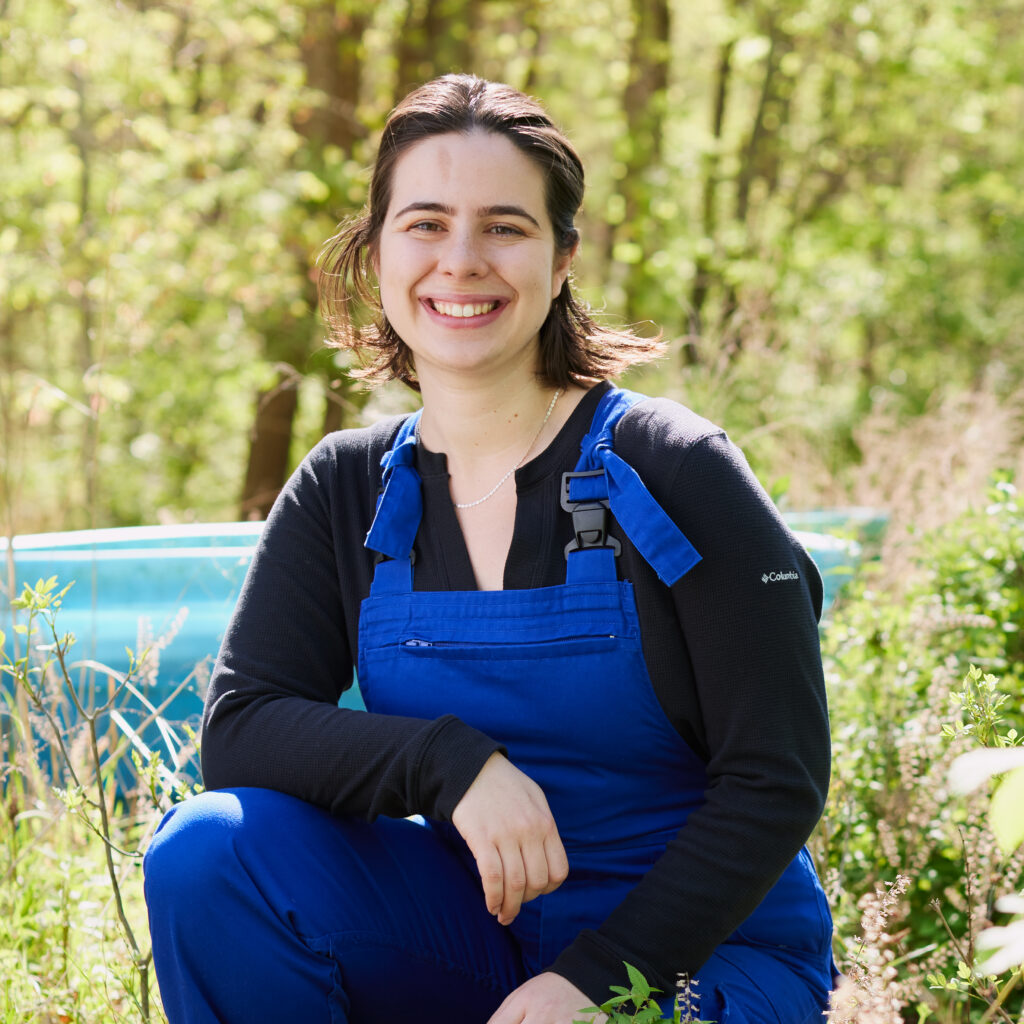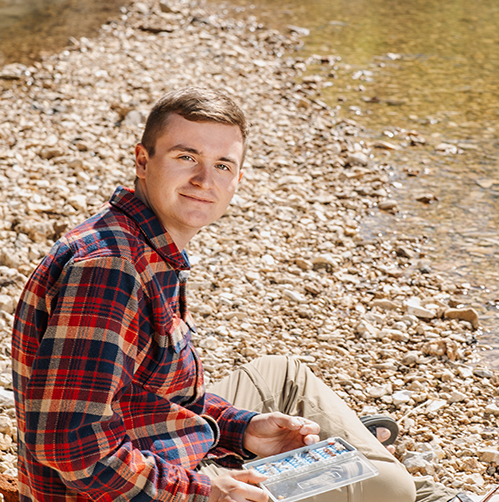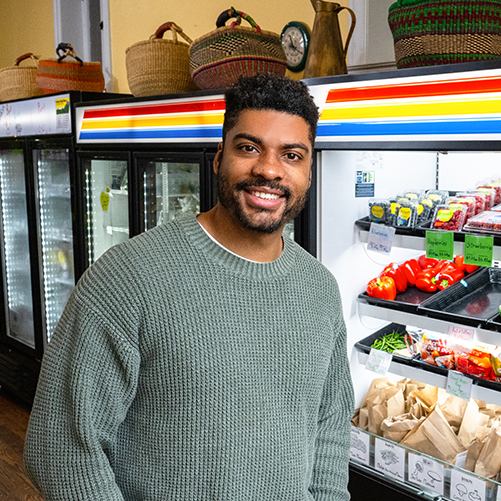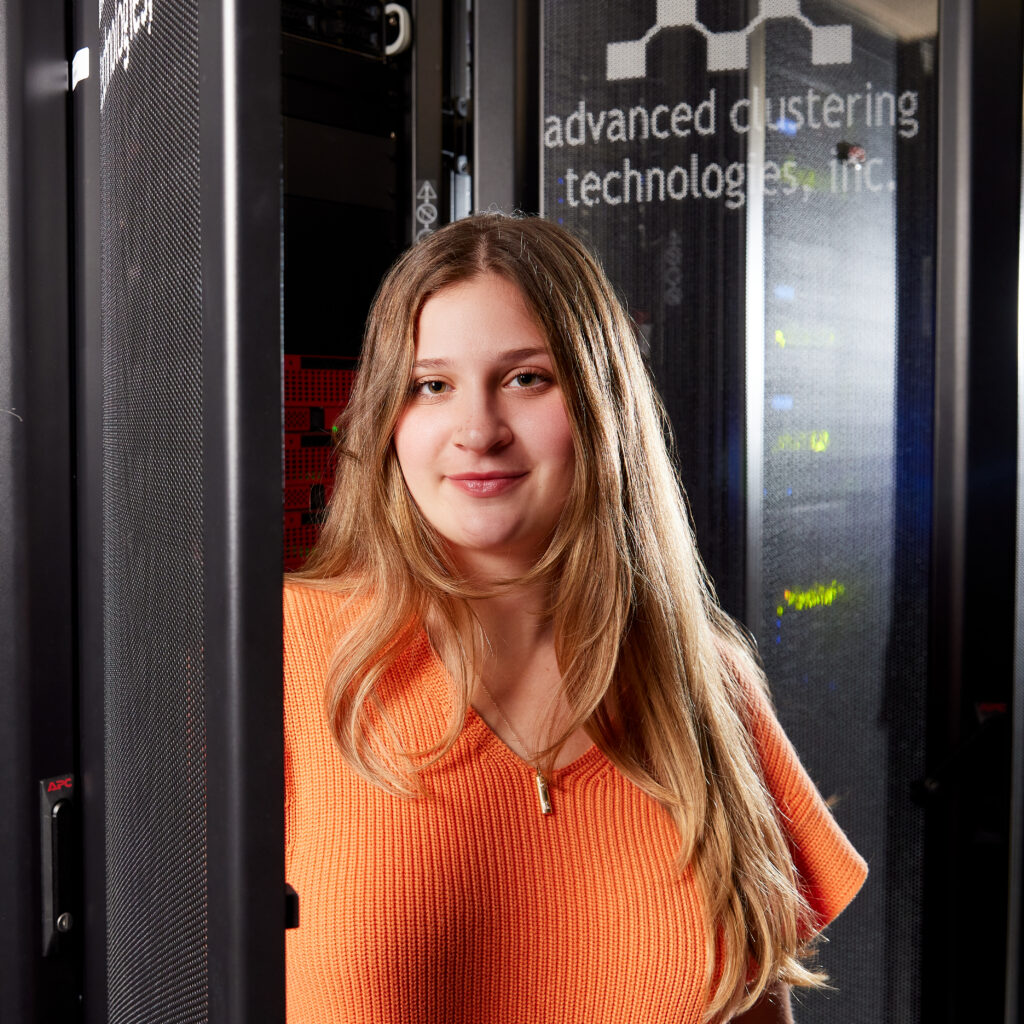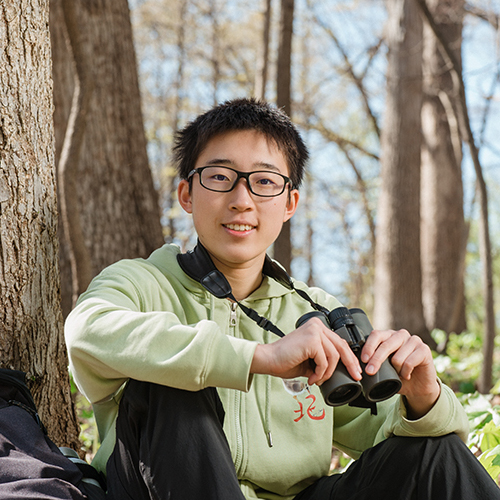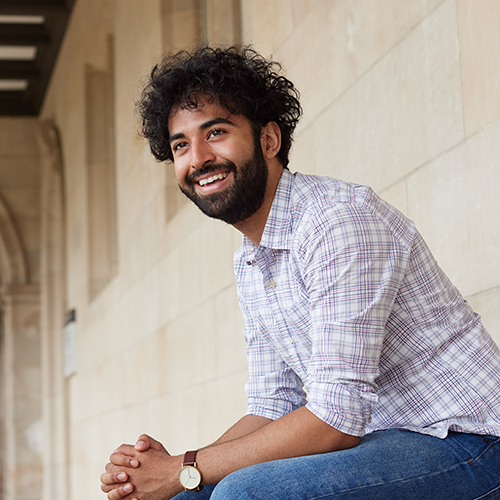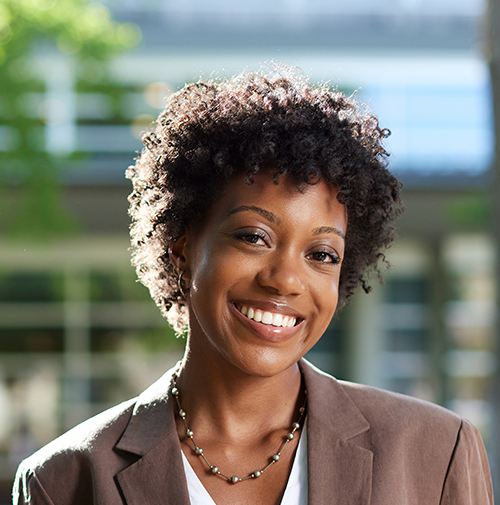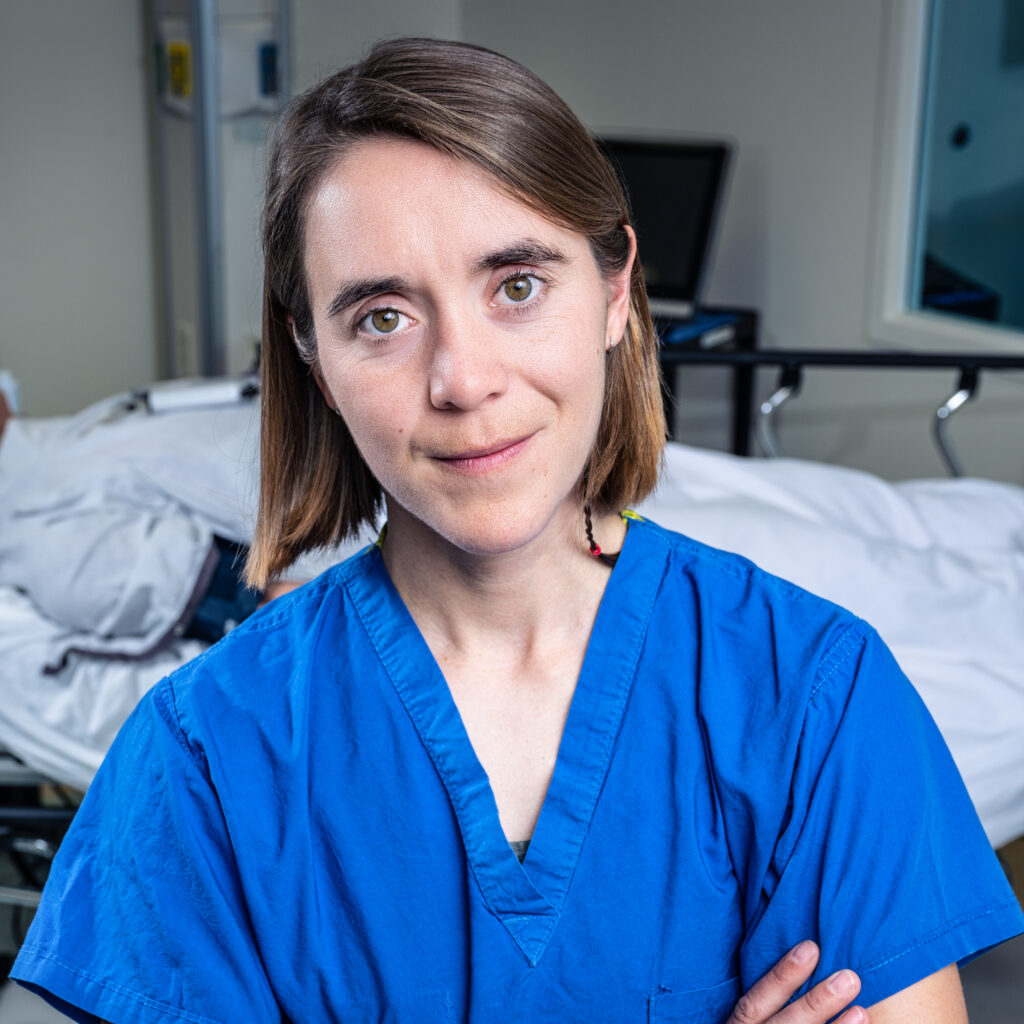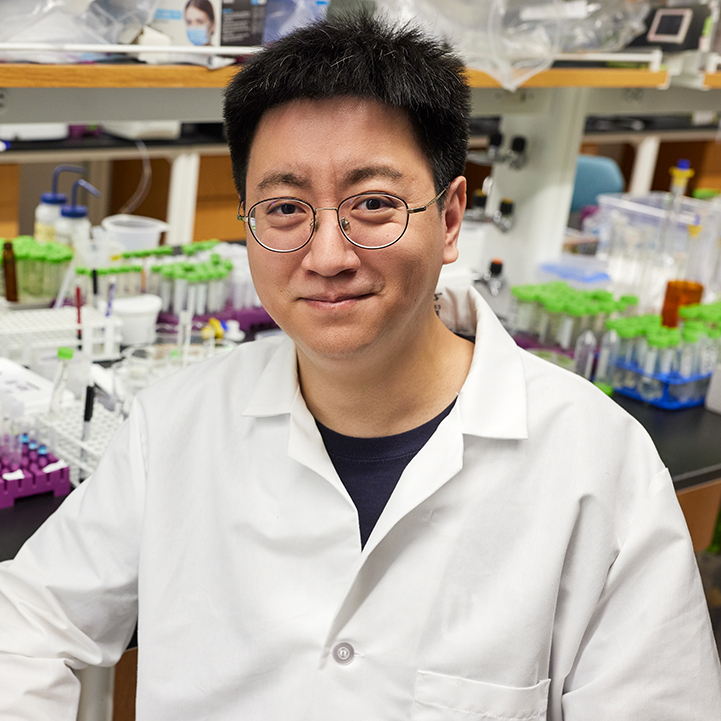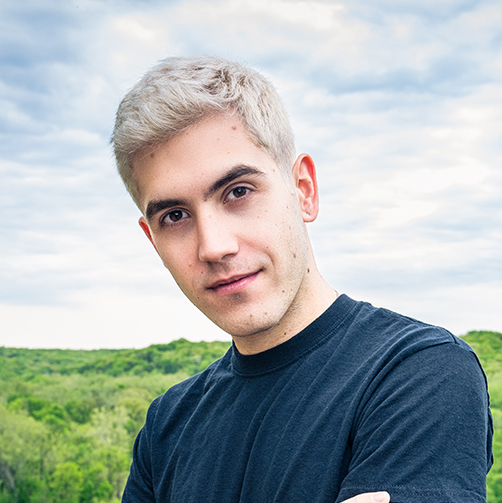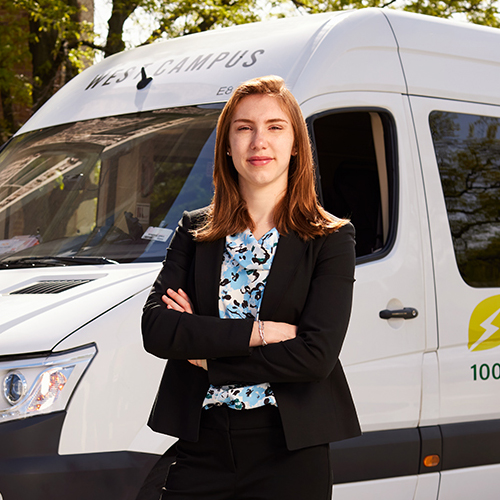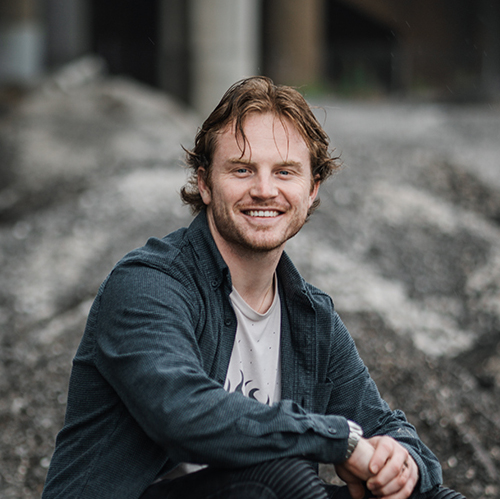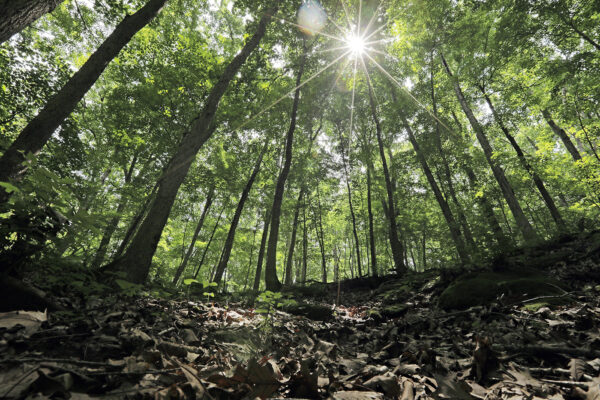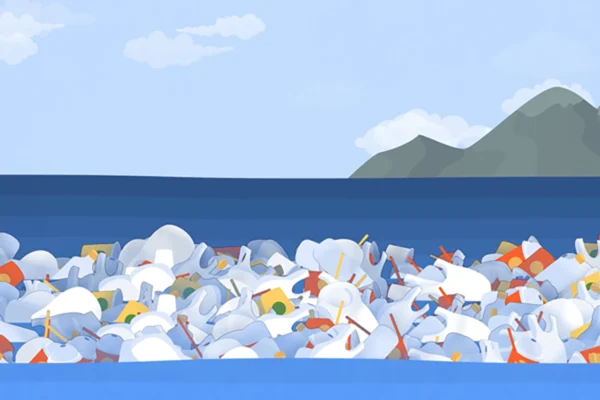Engineering student Guinter Dame Vogg is an expert in carbon emissions and global climate politics. Environmental analysis major Lauren Bruhl knows the science and the economics behind electric vehicles. And graduate student Jewel Evans employs public health strategies and the law to achieve environmental justice.
“Engineering cannot solve these problems alone,” said Dame Vogg, who is set to graduate this month with a degree in chemical engineering from the McKelvey School of Engineering at Washington University in St. Louis. “We need every tool in the toolkit.”
Dame Vogg is among the many WashU graduates ready to address the globe’s climate, environmental and sustainability challenges. He plans to start work next month at a carbon capture startup in Berkeley, Calif.; Bruhl has accepted a position as a commercial sustainability consultant at international firm Guidehouse. And Evans will work in urban development in New York.
“Our students are leaving WashU well rounded and ready to thrive,” said Phil Valko, assistant vice chancellor for sustainability. “Climate, environment and sustainability solutions are fundamentally interdisciplinary. That is why we provide students, no matter their major, opportunities to build and apply a range of skills and knowledge.”
In recent years, Washington University has exponentially expanded its climate and sustainability programs. The reason? Demand. The crisis demands immediate action; the rapidly expanding climate sector demands highly educated leaders; and students demand an education that prepares them to tackle what they say is a top priority.
Most recently, Washington University has launched the Center for the Environment, a bold initiative to advance biodiversity, environmental justice, environmental solutions and planetary health. Daniel Giammar, the Walter E. Browne Professor of Environmental Engineering at McKelvey Engineering and the center’s inaugural director, said the center serves as a connector across the university’s schools. Its more than 80 faculty scholars are working on a range of research projects, from building a more efficient lithium battery to developing a biologically synthesized substitute to plastic to identifying exposure risks for zoonotic diseases.
“Washington University has a lot of great assets, so a big goal was to create greater connections among existing programs and greater coherence of our overall effort,” Giammar said. “Our students know what’s going on within their degree programs, but they know less about all of the things outside of their program.”
WashU currently offers 12 environmental or sustainability-specific majors or minors, some 170 sustainability-focused courses and an additional 200 courses that include sustainability in the curriculum.
Among the experiential offerings unique to WashU are Sustainability Exchange, where students help a community client solve environmental challenges ranging from assessing vulnerabilities in the sanitation system to tracking emissions; the Interdisciplinary Environmental Clinic, a pro bono law clinic that handles environmental and community health cases; the International Climate Negotiation Seminar, which prepares students to serve as official observers of United Nations climate talks; RESET – Renewable Energy, Decarbonization, and the Electric Grid, where students propose a municipal solar strategy, including solar layouts, financial models and policy recommendations; and the Environmental Engineering Capstone, where students build projects for a national environmental design contest.
WashU also offers students paid internships on campus and in the community. The Office of Sustainability, the Center for the Environment, the Midwest Climate Collaborative and Tyson Research Center, through its Tyson Conservation Corps, offers interns a cohort learning experience in partnership with Environmental Studies’ Environment, Sustainability and Climate Change (ESCC) Internship Program. ESCC’s Impact Internship Program embeds students in local nonprofits. The Gephardt Institute’s St. Louis Fellows Program also funds internships with sustainability organizations.
In addition, the university offers a range of paid research opportunities including the Tyson Undergraduate Research Fellows Program and Living Earth Collaborative internships at the Missouri Botanical Garden and the Saint Louis Zoo. And this summer, the Center for the Environment will host the pilot Summer Undergraduate Research Program. Giammar said the new initiative makes it easier to get started on research and will provide a unique cohort experience.
“If you haven’t done research before, it’s hard to know how to come up with a project and apply for funding,” Giammar said. “Our goal is to eliminate some of the barriers that stand between students and research. It’s not just doing research, but building research skills and learning the breadth of the work going on at the university.”
The university also is working with regional research partners to solve local and global climate challenges. One example is the Food Futures Initiative, a collaboration between the university and the Danforth Plant Science Center, Cortex, the Missouri Botanical Garden and others to make the global food supply more accessible and sustainable.
I love seeing WashU undergraduates and graduate students taking the skills and knowledge here in engineering, landscape architecture, arts and sciences, law, public health and any other number of disciplines, out into the real world and solving those problems.
Daniel Giammar
Giammar hopes programs like these create a virtuous cycle that attracts more world-class faculty, who in turn will draw more world-class graduate and undergraduate students and postdoctoral researchers.
“We’re facing some pretty major environmental challenges, climate change first and foremost among them,” Giammar said. “But I’m an optimist. I love seeing WashU undergraduates and graduate students taking the skills and knowledge here in engineering, landscape architecture, arts and sciences, law, public health and any other number of disciplines, out into the real world and solving those problems.”
Employers are taking notice. Deko Devins, a 2017 McKelvey Engineering alumnus and president of St. Louis-based solar company Azimuth Energy, said he hires WashU graduates because they possess both theoretical knowledge and practical experience.
“I’m an engineer, but that’s only one part of the job,” said Devins, who started at Azimuth as an intern nine years ago after Valko connected him with the company. “I’m also an entrepreneur, a salesperson, an advocate for renewable energy. I knew that to succeed in this field, I needed to have a well-rounded education, and that’s why I chose WashU.”
Valko expects the university will continue to develop new research opportunities, courses and capstone projects as it strives to discover cutting-edge solutions for the globe and to be more sustainable as an institution.
“The landscape at WashU will continue to expand,” Valko said. “Our students are gaining knowledge in the classroom from leading faculty; building skills in their internships; applying those skills in their capstones; and pursuing their own goals in student groups like Green Action and Net Impact. You can really choose your own interdisciplinary adventure at WashU.”
